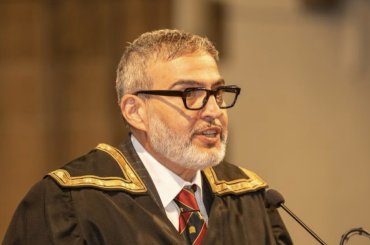Here is another sign of the end of the two-state paradigm in the minds of those who were engaged in building two states. The dialogue project, bitterlemons, is closing down. From the two statements below, you can see that Palestinian intellectuals are growing increasingly resentful of normalization efforts, and that the hope that some felt around the two-state solution has drained away, including from European sponsors. (Thanks to Paul Mutter).
Palestinian partner Ghassan Khatib, formerly of the P.A., says this:
In the foreword to “The Best of Bitterlemons” compilation published in 2007, I noted that we rarely had trouble recruiting writers. Despite the feeling among many in the Arab world that contact with Israelis is tantamount to accepting Israel’s occupation, seldom did authors decline an invitation. Lately, we have observed that this has changed, that even once-forthcoming Palestinians are less interested in sharing ideas with Israelis just across the way. Still, we have been able to present the voices of security chiefs and political prisoners, military generals and farmers losing land, spokespersons for armed groups and peaceniks in an equal and fair manner–rather differently than the situation on the ground.
Nevertheless, this achievement is bittersweet as the scenery around us grows ever more dark and uncertain. Two decades after the signing of the Declaration of Principles that many hoped would usher in the creation of a Palestinian state and independence, freedom and security, Palestinians and Israelis are barely conversational. The structures created by those agreements have atrophied, corrupted by an increasing imbalance in the Palestinian relationship with Israel. Every day, there is new word of land confiscations, arrests, demolitions, and legislative maneuvers to solidify Israel’s control. Israel’s political leaders are beholden to a tide of right-wing sentiment and Palestinian leaders are made to appear ever-smaller in their shrinking spheres of control.
We are now, it appears, at the lowest point in the arc of the pendulum, one that is swinging away from the two-state solution into a known unknown: an apartheid Israel. How this new “one-state” option will be transformed into a solution that provides freedom and security for all remains to be seen.
Israeli partner Yossi Alpher adds this:
We are ceasing publication for reasons involving fatigue–on a number of fronts. First, there is donor fatigue. Why, donors ask, should we continue to support a Middle East dialogue project that not only has not made peace, but cannot “prove” to our satisfaction–especially at a time of revolution and violence throughout the region–that it has indeed raised the level of civilized discussion? Why fight the Israeli right-wing campaign against European and American state funding and the Palestinian campaign against “normalization”?
These last two negative developments also reflect local fatigue. There is no peace process and no prospect of one. Informal “track II” dialogue–bitterlemons might be described as a “virtual” track II–is declining. Here and there, writers from the region who used to favor us with their ideas and articles are now begging off, undoubtedly deterred by the revolutionary rise of intolerant political forces in their countries or neighborhood.


A decade ago, one could not even utter the words “one-state solution;” today, it is part of the larger discourse. This is a clear sign we are on the right track to a single state that provides equal rights for all who live there.
Sorry, but Jews cannot exclusively have 80+ percent of Palestine — that will never happen.
Sad to hear that Bitterlemons is ending. It was a great site that offered up valuable point and counterpoint insights by people directly involved in the process.
But having said that, I too slowed down on my visits there as it became increasingly clear that there was little or no process to dialogue around.
Somewhere, Rashid Khalidi (Columbia Univ. prof.) says,
“One state is what we’ve got now!”
One state, with the Palestinians having no rights.
This a bad sign. But there comes a time when you can’t beat your head bloody against the wall any more.
“Here and there, writers from the region who used to favor us with their ideas and articles are now begging off, undoubtedly deterred by the revolutionary rise of intolerant political forces in their countries or neighborhood.”
I assume he is referring to the revolts and tensions in the Arab world as well as the worsening of Israel.
Just remember, as I believe Hostage told us: Once there is one state, what happens in Israel is no body’s business but Israel’s. It’s an internal matter. Once there is one-state, what keeps the Israelis from doing whatever they want? It’s a matter of “internal security”. Can anybody give me any reassurance on this? What am I missing?